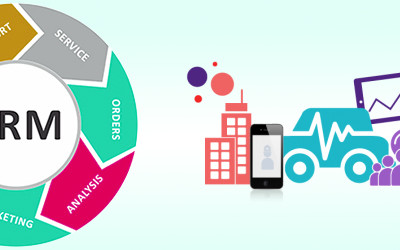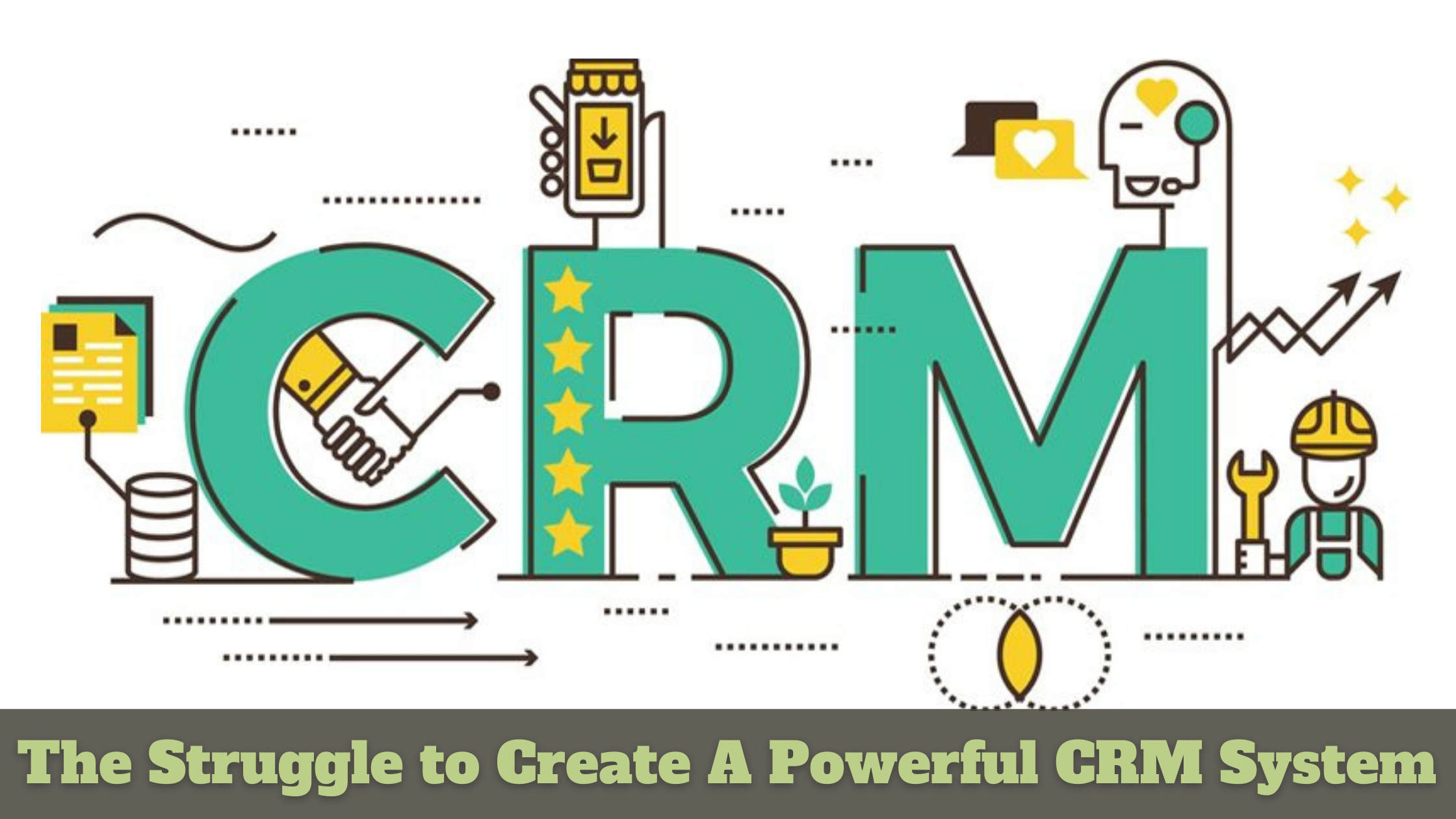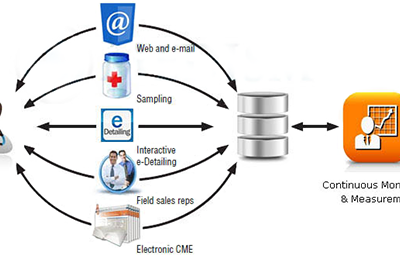
The Struggle to Create A Powerful CRM System

Customer Relationship Management (CRM) software have continuously proved its significance for many businesses across industries by successful implementation records. The ability to manage several aspects of a business such as Customer Relations, Sales, Marketing, and Service Management happens to be the core function of all top CRM software. However, it is been observed that many CRM implementation fail which thereby cause companies to pay out of pocket expenses as well as impacts future revenue negatively.
Sign up to get FREE CRM Trial
Almost every business owner is aware of the importance of an effective customer relationship management system in the modern marketplace. But still there is a struggle to create a powerful CRM system that works and is affordable.
CRM plays a pivotal role to collaborate between customer service, marketing and sales in a company. In fact, salespeople are the ones at the receiving end when it comes to reaping the core benefits of a CRM software. Nevertheless, businesses have been enduring with a number of challenges especially when implementing a new CRM system for SMEs and startups. This article is intended to throw light on some of the top challenges faced during CRM implementation to help you get past the curve.
1. The perception that CRM is too costly and too complex to use
One of the greatest challenges businesses face when implementing a CRM solution is cost. Yes, it might turn out as a costly affair if done in haste and without a robust planning. According to analyst Leary, many small business owners perceive CRM systems to be costly and overly complex. And indeed, we’ve found some are complex and expensive. Those are better suited to larger enterprises.
Here’s how to deal with the cost and complexity issues:
- Analyze price as a key factor in your decision tree. Leary points out there are even a number of cloud-based systems you can use for free making it “pretty painless to start.”
- To deal with the complexity issue, look specifically for CRM systems that mention small business on their websites. The more they focus on small business as their core market, the more likely the functionality will be in keeping with what a small business need. And if you go for a free cloud CRM, the added advantage is that the free version may be more entry level. That means it won’t be overkill when you go to implement it.
2. It’s hard to figure out what different CRM systems do
All CRM systems are not created equal. The good news is, there are dozens of CRM systems on the market. The bad news is; they each do different things well.
Some are great at managing sales leads. Others are focused more on managing relations with existing customers. Some are focused on marketing automation, i.e., automating your follow-on marketing. Others are simple and mostly help you keep track of contacts. Some do better at helping you maximize your social media networking. Make sure you devote enough time up front to evaluating CRM providers, with a well-organized and focused approach:
- Focus on YOUR needs. Don’t get dazzled by shiny objects. Write down your two or three primary pain points that you want to fix.
- Organise your evaluation. Set up a spreadsheet and list each CRM you evaluate, noting your impression of how well it meets your needs. Use live chat and take advantage of demos and free trials — most providers offer some combination of these.
- Evaluate price. While isn’t everything, in a small business it’s very important. In fact, a pricey CRM system often delivers a double whammy, because it may be loaded with bells and whistles that can make it overly complex to implement in a small company.
3. Not budgeting enough resources for a proper implementation
Many businesses get frustrated and give up too early in the implementation process, according to Leary. It takes work to implement any new software, as we’ve discovered repeatedly. Whatever amount of time and effort you think it will take, it’s likely to be double or triple that once you’re done. But that’s not a reason for not choosing a CRM system, because the benefits far outweigh the implementation costs.
It all gets back to being prepared. “Take the time up front to understand at a detailed level what challenges you’re trying to solve, and know what success is and how to measure it,” advises Leary. If you do that, you’re more likely to stick with the implementation and recognize when it’s starting to help your business.
With vast experience at hand, as a CRM development company, Global Vision Technology offers comprehensive end-to-end solutions to a wide range of CRM solutions right from pre-sales to post-sales activities, management of the resources, products, and services of an organization ranging from a small to an enterprise level. Satiating the requisites by reducing the operational cost and increasing the turnaround time of an organization by custom CRM development is the sole aim of our talented team at Global Vision Technology.
Conclusion
To reap the full benefits of a CRM, you have to choose one with the features that are right for your business today and that can grow with you as your business evolves. Think about your company’s growth goals and consider both your short-term and long-term needs when investing in a CRM platform. Keep in mind, a CRM is not only a financial investment, it is also a time investment for your sales and marketing organization. Picking the right system, implementing it, and enforcing best practices around its usage will pay dividends as your company continues to grow and scale.


